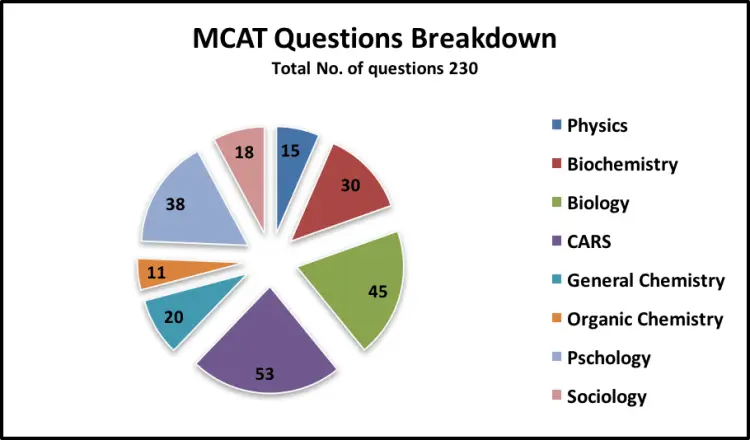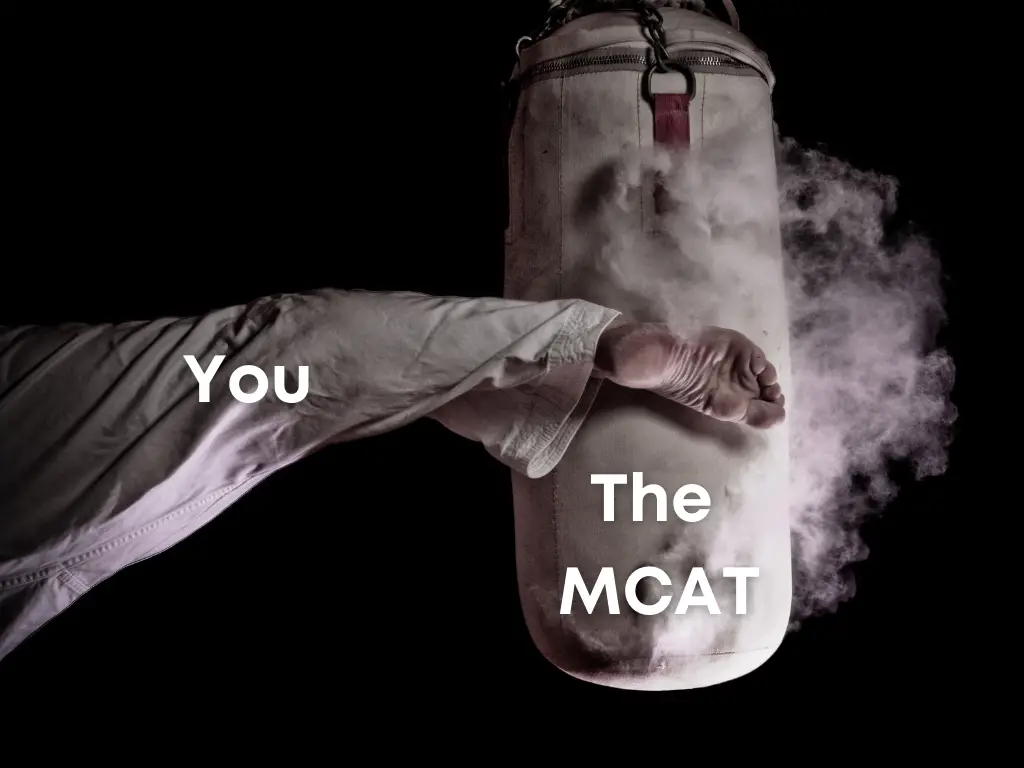Studying for the MCAT can feel impossible. There’s so much material to cover and you’re not sure where to start. The MCAT is one of the most difficult standardized tests out there. It covers a lot of ground, from your knowledge of science to your critical thinking skills. Thankfully, there is a solution. With the right preparation, you can ace the MCAT.
What Is MCAT and Why Is It So Challenging?

The MCAT is a three-day event that tests students’ critical thinking and analytical abilities. Because of its overall structure, the MCAT necessitates meticulous preparation. This exam is considerably longer in duration than other standardized examinations.
There are four sections to the MCAT: Biological and Biochemical Foundations of Living Systems; Chemical and Physical Foundations of Biological Systems; Psychological, Social, and Biological Foundations of Behavior; and Critical Analysis and Reasoning Skills. The first three sections consist of a total of 59 multiple-choice questions that must be answered in 95 minutes. The final section is composed of 32 passages that must be read in 60 minutes. Each passage is followed by a set of questions.
The MCAT is challenging for several reasons. First, the test is extremely long. Second, it covers a wide range of materials, including both the sciences and the humanities. Third, the questions are often difficult to understand. Finally, the answer choices are often very similar, making it difficult to choose the correct answer.
So, one of the main reasons why the MCAT is so challenging is its length. The test is three hours and 45 minutes long, which is significantly longer than other standardized examinations. Additionally, the MCAT covers a wide range of material, including both the sciences and the humanities. This can make it difficult for students to know what to focus on during their studies.

Is the MCAT Actually Difficult?
The exam is difficult, but the short answer to that question is “no.” Every year, a large number of students do well on the MCAT, making them even more likely to be accepted into medical school. There is no single answer to the question of why the MCAT is so difficult. However, there are several factors that contribute to the overall challenge of the exam. These include the length of the test, the range of material covered, and the difficulty of the questions. With proper preparation, however, any student can succeed on the MCAT.
What Is the Hardest Thing About the MCAT?
In my opinion, one of the most challenging aspects of the MCAT is that it covers considerably more material than any other test you have ever taken. Consider how difficult organic chemistry, biochemistry, and physics are in comparison to some of the most demanding college courses available. These are the sciences that the MCAT will test you on. Then, on top of that, the reading comprehension passages can be very dense and challenging to get through.
Sections and Disciplines: What Should You Wait on the Test?
So, as you already know, there are 6 main sections: Biology, Chemistry (which includes Biochemistry, Organic, and General), Sociology, Physics, Psychology, and Verbal Reasoning. Each of them has different question types and difficulties.
The first section is the Biological and Biochemical Foundations of Living Systems. It covers basic biology, chemistry, organic chemistry, and biochemistry. The second section is the Chemical and Physical Foundations of Living Systems. It covers basic physics, chemistry, and organic chemistry.
The third section is the Psychological, Social, and Biological Foundations of Behavior. It covers psychology, sociology, and biology. The fourth section is the Critical Analysis and Reasoning Skills. It assesses your ability to read complex scientific passages and understand them.
The fifth section is the CARS Practice Section. This section is not scored, but it gives you an idea of what to expect on the test day. Finally, the sixth section is the Sample Test Questions. These are questions that have been released by the AAMC and are meant to give you an idea of the content and difficulty of the MCAT.

The Peculiarities of MCAT Questions on Each Discipline
- Biology: The questions in this section will test your knowledge of the basic concepts of biology. You should be able to understand and apply the concepts to new situations.
- Chemistry: When answering chemistry questions, you will need to know not only the concept but also how to apply it. You have to be able to do calculations and solve problems.
- Physics: The questions in this section will test your knowledge of the basic concepts of physics. Students must be able to understand and apply the concepts to new situations.
- Psychology: During the test, you will have to answer questions about different psychological concepts. They usually touch on social and personality psychology, developmental psychology, clinical psychology, etc.
- Sociology: You will need to answer questions about different sociological concepts. The questions usually touch on topics such as family, education, religion, race, and ethnicity.
- Verbal Reasoning: This section assesses your ability to read and understand complex scientific passages. The passages are taken from various sources, including the humanities, natural sciences, and social sciences.
How Do they Score the Test?
Every student should understand how the MCAT is scored before they take the test. The MCAT is a computer-based test, and you will be given a score for each of the four sections.
Your total score will range from 472 to 528. The average score is 500. To get into most medical schools, you will need a score of 508 or higher. At the same time, section scores range from 118 to 132. The average section score is 125. Section score means much more to medical schools than the total score.
A “good” MCAT score depends on your goals. If your goal is to get into a top medical school, you will need a very high score. However, if your goal is to get into any medical school, you will need a much lower score. When it comes to the MCAT, it is important to remember that your score is not everything. The admissions committee will also look at your GPA, your personal statement, your letters of recommendation, and your extracurricular activities.
How Can I Make Studying for the MCAT Easier?

There is no one answer to this question. However, there are a few general tips that can help make studying for the MCAT easier. First, it is important to start studying early. The sooner you start, the more time you will have to prepare. Second, create a study schedule and stick to it. Dedicate a certain number of hours each week to studying for the MCAT.
With the intricate nature of the MCAT, it’s easy to believe that preparing for it may be difficult. And in all honesty, this is absolutely the case. The test itself is sophisticated, therefore preparation must be done correctly and carefully in order for you to achieve good results. This isn’t to say that taking the MCAT isn’t difficult. It doesn’t have to be difficult if you know how to study for the MCAT.
Preparing Guides
Months before the test date is a standard practice among exam experts. This is also true for the MCAT. Experts believe that months of study produce positive results and that this is why even if you haven’t completed your registration because you’re not sure when to take the MCAT, you should still register and establish your eligibility for the exam.
The first step is to get hold of a copy of the AAMC’s Official Guide to the MCAT Exam. This guide will give you an idea of what’s going to be on the test. It will also provide you with a list of recommended books and other resources that can help you prepare for the exam.
The next step, as we already told you, is to create a study schedule. This should be done based on how much time you have before the test and how much time you are willing to spend studying each day. You should also include it in your schedule when you plan to take practice exams. Make sure that you stick to your schedule as much as possible.
Finding a study group or tutor is another way to make studying for the MCAT easier. Having someone to study with can help keep you motivated and on track. It can also be helpful to have someone to bounce ideas off when you are studying. If you cannot find a study group or tutor, there are many online resources that can be just as helpful.

Finally, taking practice exams is one of the best ways to prepare for the MCAT. Practice exams will give you an idea of what to expect on test day. They will also help you identify any areas where you need to focus your studies. Be sure to take practice exams under timed and realistic conditions so that you can get the most accurate idea of how you will do on the actual exam.
Although most students take MCAT self-prep measures, it is also feasible to receive assistance in this area. You may register for an MCAT preparation course and have a tutor assist you in preparing for the exam. These sessions will walk you through which topics to cover and quiz you on specific concepts and explanations that you’re having difficulties with.
FAQs
What Happens If you Fail MCAT?
If you fail the MCAT, you will need to retake the exam. You may register for the next available test date or wait until you feel more prepared. Just register for the test date as soon as possible so that you can retake the exam and move on with your plans.
How Many Times Can I Take the MCAT?
The MCAT exam may be taken three times. The course of study for the two years prior to the anticipated test date and beyond is referred to as a continuous period. After this, you are allowed to take the exam three times within that continuous period.
How Long Should I Study for the MCAT?
Again, there is no definitive answer to this question. It depends on how much time you have before the test and how well you want to do. Generally speaking, most experts recommend studying for at least 3 months prior to taking the exam.
